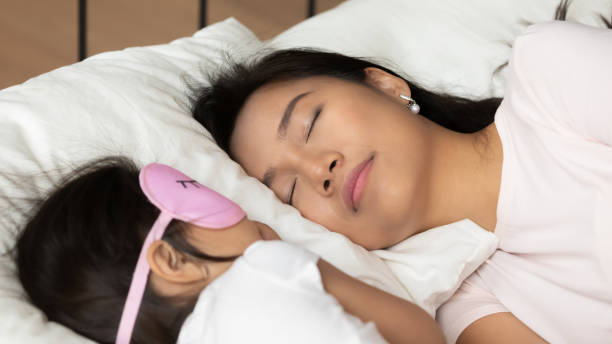Prioritizing Sleep: Strategies for Quality Rest and Recovery
In the rhythm of our modern lives, sleep often takes a back seat, sacrificed in the pursuit of endless tasks, deadlines, and distractions. Yet, amid our bustling schedules, the significance of sleep in fostering optimal health and well-being cannot be overstated. Sleep is not merely a passive state of rest; it is a dynamic process, a fundamental pillar upon which our mental clarity, physical vitality, and emotional resilience stand.
This blog post is a gentle reminder of the paramount importance of sleep, an exploration into the realm of rest and recovery that often eludes us in the cacophony of our daily routines. In the following sections, we will navigate the intricate landscape of sleep, unveiling its profound impact on our minds, bodies, and spirits.
Understanding Sleep

Sleep, the natural and recurring state of rest for the body and mind, is a complex and essential process that plays a pivotal role in maintaining our overall health. To truly appreciate the significance of quality sleep, it’s essential to understand the intricate mechanisms that operate during the different stages of sleep and the profound impact it has on our well-being.
The Sleep Cycle

Sleep is a cyclical process divided into several stages, including REM (Rapid Eye Movement) and NREM (Non-Rapid Eye Movement) stages. During NREM sleep, the body undergoes physical restoration, repairing tissues and strengthening the immune system. REM sleep, on the other hand, is associated with vivid dreaming and plays a crucial role in consolidating memories and processing emotions. A complete sleep cycle comprises these stages and lasts for approximately 90 minutes, repeating multiple times throughout the night.
The Importance of Sleep Duration

The duration of sleep required varies with age. While infants may need up to 17 hours of sleep per day, adults generally require 7 to 9 hours of quality sleep to function optimally. Insufficient sleep, which has become increasingly common in modern society, can lead to a sleep debt, impairing cognitive function, mood, and overall health.
Sleep Architecture and Brain Health

Quality sleep is vital for brain health and cognitive function. During sleep, the brain consolidates memories, processes information, and prunes unnecessary neural connections, promoting optimal brain performance. Adequate sleep also supports learning, creativity, and problem-solving abilities, enhancing our capacity to navigate the challenges of daily life.
The Impact of Sleep on Physical Health

Sleep profoundly influences physical health, affecting various systems in the body. Chronic sleep deprivation is associated with an increased risk of obesity, diabetes, cardiovascular diseases, and weakened immune function. Conversely, sufficient sleep supports hormone regulation, metabolism, and the body’s ability to repair and rejuvenate, contributing to overall physical well-being.
Sleep and Emotional Regulation
Sleep and emotional well-being are interconnected. Lack of sleep can heighten emotional reactivity, leading to irritability, mood swings, and impaired stress management. Adequate sleep, on the other hand, fosters emotional resilience, enhancing our ability to cope with challenges and maintain a stable mood. Healthy sleep patterns are essential for emotional regulation and mental health.
The Consequences of Poor Sleep

In a world that often glorifies busy schedules and late-night endeavors, the toll of poor sleep on our physical, mental, and emotional well-being cannot be overlooked. When sleep becomes a luxury rather than a necessity, the consequences reverberate through every aspect of our lives, leaving a trail of adverse effects.
Impaired Cognitive Function
One of the most immediate consequences of poor sleep is impaired cognitive function. Sleep deprivation affects attention, concentration, reasoning, and problem-solving abilities. It hampers our ability to process information efficiently, leading to decreased productivity and reduced effectiveness in both professional and personal spheres.
Emotional Turmoil and Mood Disorders

Insufficient sleep significantly impacts emotional stability. It amplifies negative emotions, making us more prone to irritability, frustration, and stress. Chronic sleep deprivation is also linked to an increased risk of developing mood disorders such as depression and anxiety. Emotional regulation becomes challenging, leading to mood swings and heightened reactivity to everyday stressors.
Weakened Immune System

A robust immune system is our body’s defense against infections and diseases. Lack of sleep weakens the immune response, making us more susceptible to illnesses. Chronic sleep deprivation impairs the production of cytokines, essential proteins for immune function, increasing the likelihood of falling ill and prolonging the recovery process.
Hormonal Imbalance and Weight Gain

Sleep plays a crucial role in regulating hormones, including those responsible for hunger and appetite. Poor sleep disrupts the balance of ghrelin and leptin, hormones that control hunger and satiety, leading to increased cravings, especially for sugary and high-calorie foods. This hormonal imbalance contributes to weight gain and the development of obesity-related conditions.
Impaired Memory Consolidation
Sleep is integral to memory consolidation, the process through which short-term memories are transformed into long-term ones. Inadequate sleep, particularly during the REM stage, hampers this consolidation process. Consequently, information retention, learning, and the ability to recall details are significantly compromised, affecting academic and professional performance.
Increased Risk of Chronic Diseases

Chronic sleep deprivation is associated with an elevated risk of developing a myriad of chronic diseases, including diabetes, hypertension, cardiovascular diseases, and certain types of cancers. Poor sleep disrupts the body’s natural balance, leading to systemic inflammation and metabolic dysregulation, both precursors to various chronic health conditions.
Creating a Sleep-Friendly Environment
The environment in which we sleep plays a crucial role in the quality of our rest. By optimizing our surroundings, we can create a sleep-friendly haven that promotes relaxation and rejuvenation. Here are essential strategies for fostering a sleep-conducive environment:
Comfortable Sleep Surface

Invest in a comfortable mattress and pillows that support your body’s natural alignment. The right mattress provides adequate support for your spine, while pillows should support your neck and head. These elements ensure a restful posture, minimizing discomfort and allowing for deep sleep.
Regulate Room Temperature

Maintain a cool, comfortable room temperature conducive to sleep. Most people find a range between 60 to 67 degrees Fahrenheit (15 to 20 degrees Celsius) ideal. Use blankets or adjust the thermostat to create a cozy atmosphere, as temperature plays a vital role in regulating the body’s sleep-wake cycle.
Minimize Noise and Light

Eliminate or minimize noise disturbances that can disrupt your sleep. Earplugs, white noise machines, or calming nature sounds can help drown out unwanted noises. Additionally, invest in blackout curtains or wear an eye mask to block out excess light, signaling to your body that it’s time to rest.
Create a Technology-Free Zone
Limit exposure to electronic devices before bedtime. The blue light emitted by screens interferes with the production of melatonin, a hormone essential for sleep regulation. Establish a technology-free zone in your bedroom and refrain from using smartphones, tablets, or computers at least an hour before sleep.
Establish a Relaxing Bedtime Routine

Develop a calming pre-sleep routine to signal to your body that it’s time to wind down. Engage in relaxing activities such as reading a book, taking a warm bath, practicing meditation, or gentle yoga stretches. These rituals prepare your mind and body for rest, promoting a smooth transition into sleep.
Limit Stimulants and Heavy Meals

Avoid stimulating substances such as caffeine and nicotine, especially in the hours leading up to bedtime. These compounds disrupt the natural sleep cycle and can make it difficult to fall asleep. Additionally, avoid heavy or rich meals close to bedtime, as they can cause discomfort and indigestion, hindering your ability to rest comfortably.
Embrace the Power of Aromatherapy

Aromatherapy, the use of soothing scents, can create a serene ambiance conducive to sleep. Scents like lavender, chamomile, and vanilla are known for their calming properties. Consider using essential oil diffusers or sachets to infuse your bedroom with these relaxing fragrances.
Healthy Sleep Habits
Beyond the ambiance of our sleep environment, the habits we cultivate around bedtime significantly influence the quality of our rest. Developing healthy sleep habits is crucial for promoting consistent, restful sleep. Here are practical strategies to enhance your sleep routine and optimize your sleep patterns:
Establish a Consistent Sleep Schedule
Maintain a regular sleep-wake schedule, even on weekends. Going to bed and waking up at the same time every day helps regulate your body’s internal clock, making it easier to fall asleep and wake up naturally. Consistency reinforces your body’s natural sleep-wake cycle, enhancing the overall quality of your rest.
Limit Naps, Especially in the Afternoon
While short naps can be beneficial, especially for boosting alertness and performance, excessive or lengthy naps, particularly in the afternoon, can interfere with nighttime sleep. If you must nap, aim for short power naps (around 20-30 minutes) earlier in the day to avoid disrupting your sleep patterns.
Engage in Regular Physical Activity

Regular physical activity during the day promotes better sleep. Exercise not only tires your body but also reduces stress and anxiety, making it easier to relax and fall asleep. Aim for at least 30 minutes of moderate aerobic activity most days of the week, but avoid vigorous exercise close to bedtime, as it may energize you and disrupt your sleep.
Watch Your Diet and Hydration

Be mindful of what you consume, especially in the hours leading up to bedtime. Avoid heavy meals, spicy foods, caffeine, and nicotine, as they can interfere with your ability to fall asleep. Also, limit your intake of fluids close to bedtime to reduce the likelihood of waking up for trips to the bathroom during the night.
Create a Relaxing Bedtime Ritual

Establish a calming bedtime routine to signal to your body that it’s time to wind down. Engage in soothing activities like reading a book, taking a warm bath, practicing deep breathing exercises, or gentle stretches. A consistent bedtime ritual prepares your mind and body for sleep, making the transition into restful slumber smoother.
Reserve Your Bed for Sleep and Intimacy
Train your brain to associate your bed with sleep. Avoid working, watching TV, or engaging in other stimulating activities in bed. Reserving your bed exclusively for sleep and intimate moments helps reinforce the mental connection between your bed and rest, promoting better sleep quality.
Manage Stress and Racing Thoughts

Stress and anxiety can keep you awake, leading to restless nights. Practice relaxation techniques such as meditation, mindfulness, or progressive muscle relaxation to calm your mind. If persistent worries keep you awake, consider jotting them down in a notebook before bedtime, allowing your mind to release them temporarily.
Overcoming Sleep Challenges
While the pursuit of quality sleep is essential, many individuals face challenges that hinder their ability to achieve restful nights. Understanding these challenges and implementing targeted strategies can significantly improve sleep quality. Here are effective ways to overcome common sleep challenges:
Insomnia:

- Establish a Relaxing Bedtime Routine: Engage in calming activities before bedtime, such as reading a book, taking a warm bath, or practicing relaxation techniques to prepare your mind and body for sleep.
- Limit Exposure to Screens: Reduce exposure to electronic devices emitting blue light at least an hour before sleep. Blue light interferes with melatonin production, disrupting your sleep-wake cycle.
- Cognitive Behavioral Therapy for Insomnia (CBT-I): Consider CBT-I, a structured program that addresses the thoughts, beliefs, and behaviors contributing to insomnia. It’s proven effective in treating chronic sleep difficulties.
Sleep Apnea

- Use Continuous Positive Airway Pressure (CPAP) Therapy: If diagnosed with sleep apnea, CPAP therapy, which delivers a continuous stream of air through a mask, keeps airways open and improves breathing during sleep.
- Lifestyle Modifications: Maintain a healthy weight, avoid alcohol and sedatives before bedtime, and sleep on your side to reduce the severity of sleep apnea symptoms.
Restless Legs Syndrome (RLS)

- Regular Exercise: Engage in regular physical activity, particularly activities that strengthen your legs, to alleviate RLS symptoms.
- Warm Baths and Massages: Warm baths, massages, and gentle stretching exercises can provide relief from RLS discomfort before bedtime.
Shift Work Sleep Disorder

- Create a Sleep-Conducive Environment: Make your sleeping area as dark, quiet, and cool as possible. Consider blackout curtains and white noise machines to minimize disturbances.
- Establish a Consistent Sleep Schedule: Maintain a regular sleep schedule even on your days off to help regulate your body’s internal clock.
Technology and Sleep

- Implement a Digital Detox: Limit screen time, especially before bedtime. Consider implementing a digital detox routine to disconnect from electronic devices at least an hour before sleep.
- Use Sleep-Tracking Apps: Utilize sleep-tracking apps and wearables to monitor your sleep patterns. These tools provide insights into your sleep quality and can help identify areas for improvement.
The Role of Technology in Sleep Improvement
In our digitally connected world, technology doesn’t only present challenges to our sleep; it also offers innovative solutions to enhance the quality of our rest. Sleep-tracking apps, wearable devices, and smart home technologies have revolutionized the way we understand and improve our sleep patterns. Here’s how technology can play a significant role in optimizing your sleep:
Sleep-Tracking Apps
Sleep-tracking apps, designed for smartphones and smartwatches, monitor your sleep patterns and provide detailed insights. They track the duration and quality of your sleep, analyzing your movements and breathing patterns. These apps offer valuable data, helping you understand your sleep habits and make informed changes to improve sleep quality.
Wearable Devices

Wearable devices, like fitness trackers and smartwatches, often come with built-in sleep-tracking features. These devices use sensors to monitor your heart rate, movements, and sometimes even your blood oxygen levels during sleep. By wearing these devices, you gain access to comprehensive sleep data, allowing you to track your progress and adjust your habits accordingly.
Smart Home Technologies

Smart home devices can create a sleep-conducive environment. Smart bulbs equipped with color-changing features allow you to adjust lighting conditions according to your circadian rhythm. Smart thermostats regulate room temperature, ensuring a comfortable sleep environment. Additionally, white noise machines and smart curtains can minimize disturbances, promoting uninterrupted sleep.
Sleep-Improvement Apps

Various apps are specifically designed to enhance sleep quality. These apps offer guided meditation sessions, relaxing music, bedtime stories, and breathing exercises to help you unwind before sleep. They often employ techniques from cognitive behavioral therapy for insomnia (CBT-I), assisting you in managing racing thoughts and anxiety that can interfere with sleep.
Sleep Coaching Platforms
Online sleep coaching platforms connect users with certified sleep coaches or therapists. These professionals provide personalized guidance and support to address specific sleep challenges. Through virtual sessions, you can receive expert advice, behavioral strategies, and tailored sleep plans, empowering you to overcome sleep difficulties effectively.
Smart Mattresses and Sleep Trackers

Smart mattresses and sleep trackers are equipped with sensors that monitor your body movements, heart rate, and sleep cycles. These devices provide real-time feedback, allowing you to adjust your sleep habits based on accurate data. Some smart mattresses even offer features like adjustable firmness and temperature control, ensuring a personalized and comfortable sleep experience.
Final Thoughts
When we prioritize sleep, we gift ourselves the opportunity to rejuvenate, heal, and grow. During sleep, our bodies repair tissues, our minds consolidate memories, and our emotions find equilibrium. It is a time of restoration, a sanctuary where the chaos of the day gives way to the tranquility of the night.
By establishing a consistent sleep schedule, curating a calming bedtime routine, and leveraging the benefits of technology, we pave the way for a future enriched with vitality and clarity. We let go of the notion that sleep is time wasted and embrace it as an investment in our overall well-being. As we sink into the embrace of restful slumber each night, we embark on a journey of renewal—a journey that prepares us to face the challenges of the day with resilience and grace.








